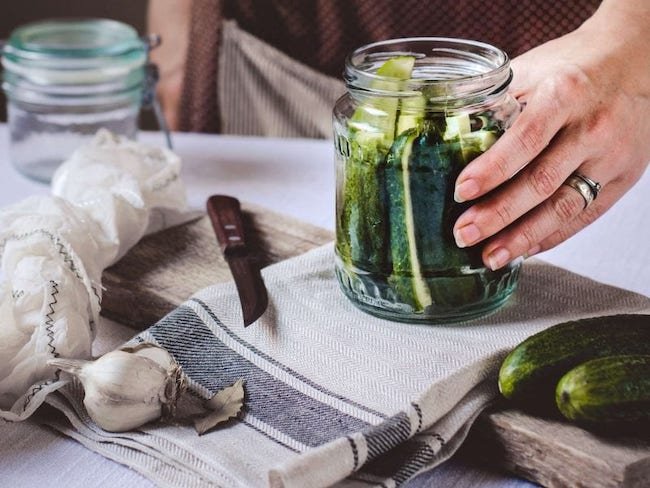Fairness Across the Food Chain w/ FoodShare Toronto
Do you know where your food comes from? Whose hands harvested your produce? This workshop explores different sites of oppression and exploitation – of both land and people – along the food chain. Through facilitated conversations, your team will do a deep dive into the environmental and social impacts of our food system, asking questions like: Who holds power and privilege along the food chain? Who doesn’t? How can we transform the food system into an equitable and just one? We’ll also talk about changes we can make at home to work toward a fairer food system, putting this into practice as we learn how to make ‘empty-the-fridge’ Chinese dumplings or quick pickles as a way of reducing food waste.
Length: 150 minutes
Sample Menu:
quick at-home canning (think pickles, chutney, and jams galore)
Fresh Ingredient Kits: Canada-wide delivery
Type: Virtual or in-person (within the GTA)
Serves: 2 or 4
Learning: Materials to encourage personal learning around the themes explored during the workshop are sent to participants both pre & post event
Meet Your Community Leader: Jade Guthrie
Jade believes in the power of food as a meeting point – as a tool that creates space for people to come together. At FoodShare, jade's role as Community Food Programs Coordinator gives her freedom to explore that space in relationship with communities across the city – cooking, preserving, eating, and learning together.
Her background in social work (MSW) brings an anti-oppressive, critical lens to the work she does around food, with a focus on engaging with food justice and sovereignty movements in meaningful ways. She is particularly passionate about mobilizing the stories we tell (both ourselves and others) as a means of creating connections and building community.
About FoodShare Toronto
FoodShare believes in the importance of a food system where everyone can feed themselves, their family and their community with dignity and joy. With programs ranging from urban agriculture at school-based farms to community kitchens for folks living in transitional housing,
FoodShare reaches over 260,000 people in Toronto people each year. FoodShare centres food justice in their work by collaborating with those most affected by poverty and food insecurity — Black, Indigenous, People of Colour and People with Disabilities.
Proceeds from each session support FoodShare's work with communities across the city focused on equitable food access.
Learning Outcomes
Learn
about anti-racism and anti-oppression frameworks
Discover
the interconnections between food justice and racial justice
Learn
how to engage and participate in food-justice based conversations
Gain
knowledge about the inequities in our city’s food system and learn what you can do to positively contribute
Build
social connections across colleagues and stimulate team cohesion




